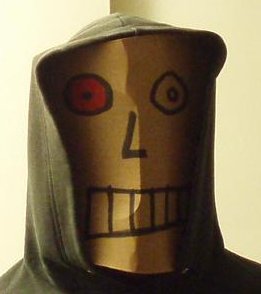I really love sci-fi novels and I read a lot of books. I read 2312 by Kim Stanley Robinson a while back and that book is particularly interesting to me. Rather than each chapter advancing the narrative of the story, there were occasional breaks where a chapter would have a list of semi-random words which just gave the vibe of what’s happening, or some history of a scene, or a recipe for how to build an asteroid.
There’s another book that I have heard of but neglected to write the name down, where the reader of the book is a character within the book, and the narrator speaks directly to you (but not a choose-your-adventure style book).
All of this got me interested in finding other books, preferably sci-fi or maybe fantasy, where the concept of being a book is played with and new ideas are tried. Any recommendations?
House of Leaves by Mark Z. Danielewski fits that model really well.
+1 to this book, it’s really surreal
I immediately thought of House of Leaves. Do not read it as an ebook, if there even is an ebook version. It must be read as a physical book.
Agreed! House of Leaves is a must read. Get the physical book, it won’t work with an Ereader. I got the softcover edtion and it was totally worth it. If I ever sell my house I am going to rough up my copy real good and hide it somewhere for the new owners to find.
It gave me actual nightmares about houses. Such a high quality book!
House of Leaves is fantastic.
Another book of his, Only Revolutions, is wild, but I couldn’t get through it. You have to turn the book upside down to read half of it.
Fun fact, his sister is the singer Poe
deleted by creator
Player of Games is told in reverse, it works really well. Book of the New Sun is an Ouroborus, so you don’t really understand it until you read it twice.
Edit: I mean “Use of Weapons” not Player of Games.
Use of Weapons is among my absolute favorite books. What an absolutely incredible journey
A lot of Douglas Coupland novels play with the form. Microserfs has a similar thing to 2312, except it is one of the characters random txt files on their desktop that lists words in a David Foster Wallace way.
Wallace also plays with the form of the book, particularly with end notes in Infinite Jest.
House of Leaves by Mark Z. Danielewski plays with the physical form of the book by rending two stories in parallel and playing all manner of interesting typesetting tricks.
Then there’s Tristan Shandy by Laurence Sterne and published in 1759. It’s argued that it is the first post-modern novel. The “author” is attempting to tell you the story of his life, but never really gets there because of endless digression.
You should check this page out: https://en.m.wikipedia.org/wiki/The_Life_and_Opinions_of_Tristram_Shandy,_Gentleman
You mean If on a Winter’s Night a Traveler by Italo Calvino? Still do check it out
yea this definitely fits the description. brief summary: chapters alternate between the first chapters of different novels, and the main character (addressed as “you”) trying to track down the different novels whose chapters youve just read which are cut off for various reasons. it is great, relatively short (i think 250-ish pages in my copy), and if you dont mind the wild stylistic jumps between chapters its pretty delightful.
What a weird fucking book! It’s not the exact one I was looking for (I believe in my novel, one of the characters in the book begged the reader not to finish the book, because then the character would die).
Thanks so much for the recommendation though, it’s definitely the sort of weird I was looking for. I found it a bit hard to get through - I think it being a translation made some parts a bit stilted and a bit unrelatable for me - but I still read it over only a couple of days. I felt at chapter 8 where we read a Certain Character’s diary that the book was coming together and starting to make sense for me.
glad you liked it in the end. I still have to read it, never went past the first couple of chapters myself :)
Ilium/Olympos by Dan Simmons has a very interesting theory about reality and fiction, and what ties them together. Unfortunately, it’s tied to a very late plot point that I would hate to spoil on a Lemmy comment.
What a great question. I have added S and House of Leaves to my to-read list.
another older recommendation is jacques the fatalist, where jacques is attempting to tell the story of his lovelife but is constantly interrupted by other people telling their own stories, there is a “reader” who interrupts the narrator to ask questions, and the narrator at times gets bored of telling the story and asks the reader to fill in their own details. it also has an entire section directly from tristam shandy near the end.
not sci fi or fantasy but worth a read if you have the patience.
Self-Reference ENGINE by Toh EnJoe definitely fits this description.
In the middle it feels like nonsensical chaos, by the end it all folds back in on itself.
Adding to this to say you MUST get it in physical form. DO NOT read it on an e-reader. There are important reasons for this.
Not sci-fi but The Princess Bride is also a story-within-a-story.
The Zombie Survival Guide by Max Brookes is a detailed fictional instruction manual. It’s sequel is World War Z which is closer to a normal book, but still has an odd structure of creating a world through interviews … and the The Zombie Survival Guide book exists within it.
The WWZ audiobook is really solid.
Did they get different people to record each story?
Yup! Alan Alda and Henry Rollins are the only 2 I can remember off the top of my head. Get the expanded version - the original was abridged, but the new one has all the content.
Oh fab, I’ll keep an eye out for it. It’s one of my favorite books :-)
Thanks for the suggestion. Should I read WWZ first?
As with so much in life, it’s best to read the manual first. It can get a little dry in places though, like any instruction manual, but I enjoyed all of it because I’m the sort of person who likes normal manuals, lol
WWZ is one of my all time favorite books. They should really make it into a movie. Or, even better, an HBO miniseries.
I dunno, I think maybe some things should just be left alone
“S” by J.J. Abrams(yes, that one) and Doug Dorst
At face value it is a book about a man who became a member of a ship’s crew and his journey. There is a second layer of editors notes left by the translator. Then there is a third layer of two previous readers of the book. There are puzzles and clues tucked into the pages of the book that you, as the third reader, try to understand what the fuck is actually going on.
I think Idaho Winter by Tony Burgess does this pretty well. It’s a wild read.
Wow, what a mindfuck. Had a bit of time to spare before getting up and read it through in one go. Not what I was expecting from the (honestly boring) cover. Thanks for the recommendation!
There’s another book that I have heard of but neglected to write the name down, where the reader of the book is a character within the book, and the narrator speaks directly to you
If, on a winter’s night, a traveller?
What a weird fucking book! It’s not the exact one I was looking for (I believe in my novel, one of the characters in the book begged the reader not to finish the book, because then the character would die).
Thanks so much for the recommendation though, it’s definitely the sort of weird I was looking for. I found it a bit hard to get through - I think it being a translation made some parts a bit stilted and a bit unrelatable for me - but I still read it over only a couple of days. I felt at chapter 8 where we read a Certain Character’s diary that the book was coming together and starting to make sense for me.
I believe the chapters that sound stilted were deliberately written thus to give an air of being foreign or exotic.
My favourite chapter in the book was the discussion on censorship. My country has a weird and completely unpredictable censorship system that depends on how many people got offended, who they know, which judge the case goes to, and how well the author can get the media interested in the case.
I think the most famous example is probably “Pale fire” by Nabokov. Not sci-fi, but very very fun! George Perec write some interesting concept books. One is about this apartment in Paris where every chapter just describes a random room in the building, but slowly tells a story of the inhabitants.
Stanislaw Lem’s Imaginary Magnitude, a collection of introductions to non-existent books, is tangentially related to what you’re asking here. Worth reading.









